Ancient History looks at every aspect of the ancient world: you'll find articles covering politics, society, literature, language, religion, economics, and art - all in one magazine! Like its big brother, Ancient Warfare, Ancient History Magazine is a bi-monthly, 60-page magazine that relies on a thematic approach: each issue is centered around one specific subject. From ancient Egyptian trade and Roman family life to the lost city of Pompeii, there's sure to be something for everyone - all presented in a well-researched but accessible, fun manner.
Ancient History Magazine
Roman ship carried cargo of fish sauce
EDITORIAL – THE FIRST MAN IN ROME
Double burial in Austria reassessed
Ball of Tyrian purple dye found in Carlisle
Egyptian doctors studied cancerous tumours
Plato's gravesite revealed in a carbonized papyrus
Rich burials discovered along roads at Roman Nîmes
Family's furry friend was a tamed fox
A LOOK AT THE FUTURE OF PAPYROLOGY DATING INK • The scandals of the Gospel of the Wife of Jesus and the Sappho fragments prove that papyrologists do not always live up to their professional standards. However, this cannot be the final word about papyrology. We will finish the 'Unrolling History' series with an exciting scientific breakthrough.
WAS THERE AN ANCIENT ROMAN HALLOWEEN? MUNDUS PATET • The Mundus Patet is one of ancient Rome's most mysterious and misunderstood religious festivals. While details of the festival are vague, it seems to have marked the opening of the gate between the underworld and the world of the living.
BEYOND THE STANDARD • The so-called Standard of Ur, a box decorated with scenes of peace and war, is likely the most well-known object to have been discovered by Leonard Woolley during his excavations of the First Dynasty (ca. 2600–2400 BC) cemetery at Ur, the Sumerian capital. The standard was, however, only one of many spectacular discoveries made during the twelve years of excavations (1922–1934). First identified in 1922 by Woolley, the cemetery of Ur would eventually yield up remarkable results, many of which deserve to be much more widely known.
The Sumerian King List
A HISTORY OF THE SECOND TRIUMVIRATE THE RISE OF OCTAVIAN • Rome lost its Republic because the last generation of the Republic's leaders underestimated the intelligence, savvy, and brutality of Caesar's sickly, inexperienced, eighteen-year-old heir, Octavian. Unlike other Romans, Octavian recognized that Caesar had ended the world governed by the Republic's rules and birthed a new one in which the will of powerful individuals determined the direction of the state. The Second Triumvirate was the first step formalizing this new constitutional order.
The last Republicans
GOOD OLD-FASHIONED VALUES THE AUGUSTAN MORAL REFORMS • After almost a century of unrest and civil war, the Roman world, under the sole rule of Augustus, had entered a new period of relative peace and prosperity. Instead of fighting other Romans, Roman armies were now, once again, fighting barbarians, as they should be. For many Romans, moral decline had been the root cause of the horrors of the last decades. Augustus turned to legislation to reverse this decline, outlawing immoral behaviour.
AUGUSTUS THE BUILDER • During Augustus' 44-year reign, ambitious new buildings rose using advanced construction techniques, funded in large part with the proceeds of war plunder, facilitated largely by his loyal friend Marcus Agrippa, and maintained by professional direct labour organizations.
The gardens of Agrippa
THEME LIVIA AND THE AUGUSTAN PRINCIPATE MOTHER OF THE NATION • Livia, the wife of Rome's first emperor Augustus, is often thought of today as a poisoning schemer who pushed her son Tiberius into power. Her real story is even...

 AH 57
AH 57
 AH 56
AH 56
 AH 55
AH 55
 AH 54
AH 54
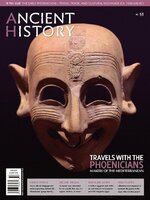 AH 53
AH 53
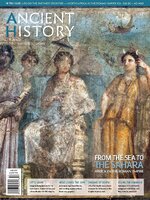 AH 52
AH 52
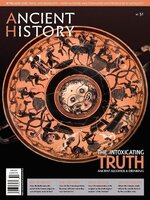 AH 51
AH 51
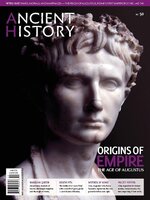 AH 50
AH 50
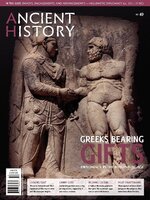 AH 49
AH 49
 AH 48
AH 48
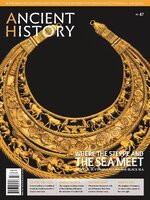 AH 47
AH 47
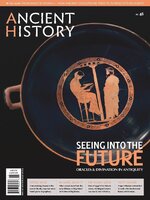 AH 46
AH 46
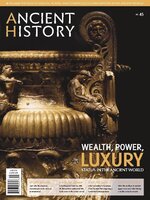 AH 45
AH 45
 AH 44
AH 44
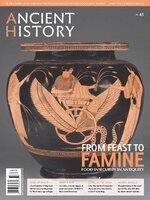 AH 43
AH 43
 AH 42
AH 42
 AH 41
AH 41
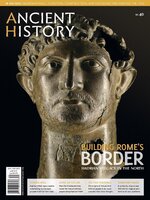 AH 40
AH 40